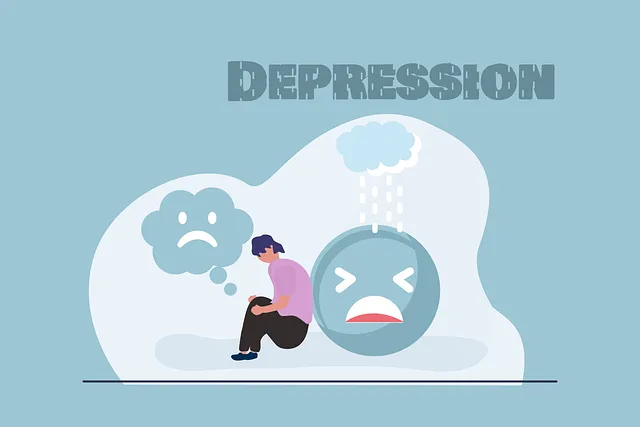Castle Rock Kaiser Permanente leads Norcal (Northern California) in effective public awareness campaigns for mental health. Their strategic approach involves tailored messaging, demographic research, and clear objectives, utilizing both traditional and digital media to reach diverse audiences. By providing accessible information like the mental health phone number, personal narratives, and highlighting services such as Anxiety Relief and Trauma Support, these campaigns reduce stigma and foster open dialogue about mental wellness. The program's success is evident in its ability to engage communities through workshops, peer support groups, podcasts, and stress reduction methods, breaking down barriers to accessing mental health resources.
Public awareness campaigns play a pivotal role in shaping societal perceptions and behaviors, particularly in sensitive areas like mental health. This article delves into the development of impactful campaigns, offering insights from both theoretical perspectives and real-world examples. We explore strategies for success through a step-by-step guide tailored for Kaiser Permanente in Norcal, and present a case study of Castle Rock’s Mental Health Awareness Program, highlighting key lessons learned. For immediate assistance regarding mental health concerns, contact the Castle Rock Kaiser Permanente mental health phone number.
- Understanding Public Awareness Campaigns: Their Role and Impact in Mental Health Initiatives
- Strategies for Effective Campaign Development: A Step-by-Step Guide for Norcal's Kaiser Permanente
- Case Study: Castle Rock's Mental Health Awareness Program – Lessons Learned and Best Practices to Implement
Understanding Public Awareness Campaigns: Their Role and Impact in Mental Health Initiatives

Public awareness campaigns play a pivotal role in shaping public perception and fostering understanding of various social issues, including mental health. These initiatives are designed to educate communities about specific concerns, promote open dialogue, and encourage individuals to seek help when needed. In the context of mental health, such campaigns can be life-saving, helping to reduce stigma, increase access to resources, and ultimately improve community well-being.
For instance, organizations like Castle Rock Kaiser Permanente have been at the forefront of mental health awareness efforts in Norcal (Northern California). Their initiatives focus on providing accessible information about available services, such as phone numbers for mental health support (e.g., Kaiser Permanente’s dedicated mental health hotline), and promoting strategies for Anxiety Relief and Trauma Support Services. By reaching a wide audience through various media channels, these campaigns contribute to a more informed society, empowering individuals to take charge of their mental health and connect with critical resources when facing challenges like anxiety or trauma.
Strategies for Effective Campaign Development: A Step-by-Step Guide for Norcal's Kaiser Permanente

At Castle Rock Kaiser Permanente, developing effective public awareness campaigns requires a strategic, multi-step approach to ensure impactful messaging and behavior change. The process begins with thorough research into the target audience’s demographics, behaviors, and existing knowledge about the campaign topic, in this case, mental health. Incorporating feedback from community stakeholders and individuals with lived experiences is vital for creating resonant content that resonates with diverse audiences.
Next, define clear objectives and key messages that align with Norcal’s commitment to promoting well-being. This might include highlighting accessible resources like the mental health phone number and emphasizing coping skills development or mental illness stigma reduction efforts. Craft engaging narratives that humanize the issue, share personal stories, and offer practical Self-Awareness Exercises. Utilize a mix of traditional media and digital platforms for widespread reach. Regularly evaluate campaign performance and adapt strategies based on data insights to optimize results.
Case Study: Castle Rock's Mental Health Awareness Program – Lessons Learned and Best Practices to Implement

The Castle Rock Kaiser Permanente mental health awareness program serves as an excellent case study for community-driven initiatives. This program, focused on norcal residents’ mental wellness, employed a multi-faceted approach, including educational workshops, peer support groups, and a dedicated mental health phone number accessible 24/7. The initiative’s success highlights the importance of tailored interventions and community engagement.
Through this program, Castle Rock successfully increased public awareness about mental health issues, breaking down stigma and promoting open conversations. They utilized innovative strategies like a Mental Wellness Podcast Series Production to reach diverse audiences and offer practical Stress Reduction Methods and Conflict Resolution Techniques. The lessons learned from this case can guide future public health campaigns, emphasizing the power of community collaboration and accessible resources such as those provided by Kaiser Permanente’s mental health hotline.
Public awareness campaigns play a pivotal role in fostering mental well-being, as evidenced by successful initiatives like Castle Rock’s Mental Health Awareness Program and Norcal’s Kaiser Permanente’s strategic approach. By combining education with accessible resources, these campaigns can significantly impact communities, encouraging early intervention and support for mental health issues. For those seeking guidance, the step-by-step development process outlined in this article, coupled with real-world case studies, serves as a valuable resource. Contacting local mental health services, such as the Castle Rock Kaiser Permanente phone number, can provide further assistance, ensuring individuals have the necessary tools to navigate and thrive in their mental health journeys.






